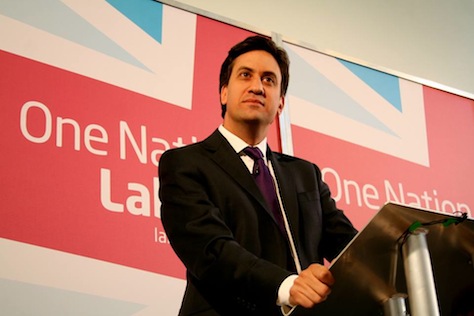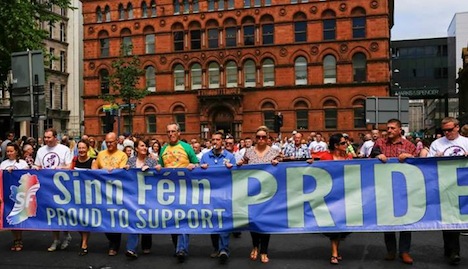
Imagine yourself as a typical, middle-class voter in Northumberland.![]()
![]()
Two years ago, you watched as your Scottish brethren to the north held a vote to consider whether to declare independence from the United Kingdom.
When they narrowly voted against independence, you watched as prime minister David Cameron renewed not only the Conservative, but the Labour and Liberal Democratic promise to enact ‘devolution max‘ for Scotland. He also declared, within hours of the vote, that he would seek to prevent Scottish, Welsh and Northern Irish MPs from voting on local English matters in Westminster, thereby correcting the long-discussed West Lothian question. (He managed mostly to annoy Scottish voters, pushing them in even greater numbers to the Scottish National Party and its talented leader, first minister Nicola Sturgeon). As the independence threat receded, however, Cameron failed to follow up on either the Scottish or the English side of the federalism issues that the referendum brought to the fore.
Now imagine that you feel like your fraught middle-class status is threatened — by the global financial crisis of 2008-09 or by the widening scope of inequality or even by the rising tide of immigrants to your community, making it even more difficult to compete for dignified and meaningful work.
Maybe you even decided to abandon the Tories or Labour in the 2015 general election, voting instead for the eurosceptic United Kingdom Independence Party (UKIP) as a way to send a message to Westminster about immigration or globalization. But with the first-past-the-post system, 12.7% of the vote for UKIP translated into just one seat among the 650-member House of Commons. Within England alone, UKIP won an even larger share of the vote (14.1%) than it did nationally. Again, you might have felt that your vote counted for little. Or nothing.
And so, as another referendum approaches this week on whether the United Kingdom should remain a member of the European Union, you might feel doubly disenfranchised. First, to the nameless bureaucrats in Brussels that you believe dictate too much in the way of the laws and policies that govern England. Secondly, within a national political system whose rules minimize third parties and whose leaders have devolved power to all of the regions except, of course, the region where nearly 84% of the population lives: England.
Leaders of the ‘Leave’ campaign make it none too clear that, among their goals is this: Take. Back. Control. Perhaps it’s not coincidental that the parts of the United Kingdom with the greatest amount of regional devolution — London, Scotland, Wales and Northern Ireland — largely support the ‘Remain’ side in the Brexit referendum, according to polls. If ‘Leave’ wins on June 23, there’s a very good chance that it will do so despite the firm opposition of non-English voters.
Continue reading Brexit vote is England’s parallel to Scottish independence referendum





